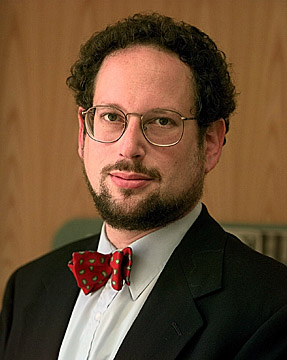After the brief introduction to the author, it is time to dive into the proper article. What were the most important issues Michael Froomkin raises?
Internet provides tools for a better discourse.
Keep the above in mind because it is, really, what his article is about. It is a well known fact that most people tend to forget majority of what they read soon afterwards. I don't expect you to remember most of my blogs, and I am sure Froomkin doesn't expect his readers to remember much of his article. But if you can remember the above idea, I think both of us will be quite happy with the outcome :)
Now, its time for some details. There are some interesting issues Froomkin raises in his article that I plan to discuss today and tommorow (in the last, third part of 'Technologies for Democracy' series). They mostly resolve around the technologies for better discourse and their impact Those technologies mentioned by Froomkin are
blogs,
wikis, 'collaborative filtering tools' (like
Slashdot) and 'community deliberation tools'.
The first two we are all (I hope...) fairly familiar by now. Froomkin, being a blogger himself, makes good points about the raising importance and benefits of blogs, especially as a form of cosmopolitan views exchange and political commentary (see also my
recent blog about the P-blogs). However, I do think he undervaluates wikis (he doesn't mention
Wikipedia at all! shame, I say!). I'd guess this stems from personal experience (or rather, lack of it) - he probably didn't spend much time in the wiki communities. I am perfectly willing to excuse it considering his valuable input on blogs and other projects - but let me adress a few wiki-related points that I think would benefit from further consideration in his article.
Froomkin mention some interesting wiki-based projects (like
Openlaw), but I think he misses the important point about wikis: they are not only databases, but also a discussion forums. Blogs don't make for a good database - thus I think that for anything more complex then a news report, wikis are a much better choice (and even here I could argue with
Wikinews). Besides, even as a discussion forum wiki offers a better functionality that a normal blog: headers allow the discussion of many topics on a same page, indents allow it to be as readable as the
Usenet discussion, and interlinks allow users to move the discussion into completly new subpages and of course create a thematical pages on related concepts. I am not saying that blogs will die out or be replaced by wikis, but I am sure that most complex projects, wikis are better then blogs. And I think that virtually anything connected to some serious governance projects is complex.
The 'collaborative filtering tools' section is very interesting, but I have one problem with it: Froomking mentions
Slashdot as the only example. Slashdot, being a very interesting cross between a website and a blog, with a dash of some fairly unique ideas of its own, is definetly a framework with lot of potential. Unfortunately, as far as I know, no other website has been able to use the 'slash' software to ovetake orginal Slashdot in popularity (see
Alexa for the best comparison tools). News reporting and discussion, while worthwile, also limits the impact of this technology on the 'public sphere', just as with the blogs. I can see great potential in some elements of its software, like its 'karma', and I'd like to see it implemented in wikis (including *the Wiki*) and other 'community deliberation tools'. All this considered, I am not sure if Slashdot is really important enough to deserve its own section - but I have to admit I am fairly unfamiliar with the site, so maybe one of you, dear readers, more familiar with this subject would like to support Froomkin's POV?
Finally, we reach the governent-related 'community deliberation tools', a subject perhaps most important in terms of government digital governance and erulemaking. I do hope that tools like
deliberative polls and others, drawing on experiences and innovations of community created sites like blogs, wikis, Slashdot and other more or less exotic sites out there, will lead us to a more efficient political system. From town meetings to country policy, those tools promise us a possibility of a major change - vastly increasing the power of our votes. Of course, as Froomkin himself mentions, a promise is just this - a promise. It is up to us to use it - or lose it.
Tune in tommorow for some ending comments on scaling,
digital divide,
Jürgen Habermas, human nature and the meaning of life.
A final thought for today: since I decided to blog my paper, I certainly hope to receive some comments here!






